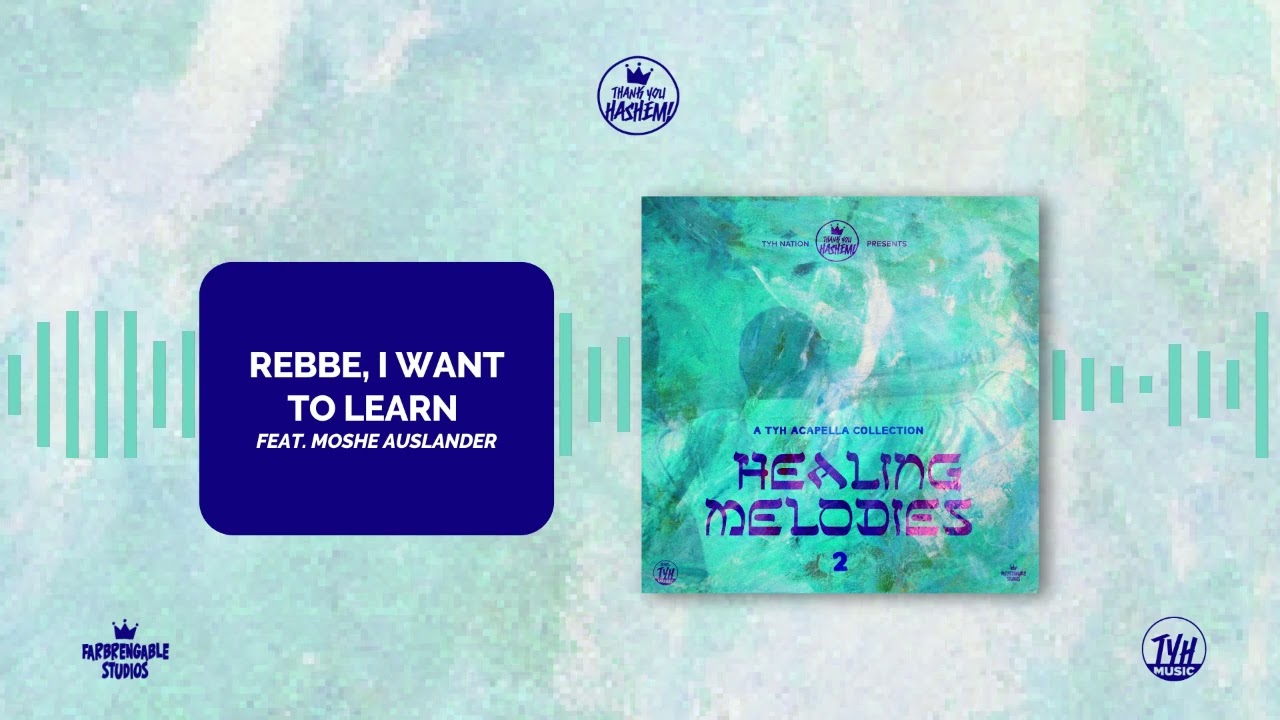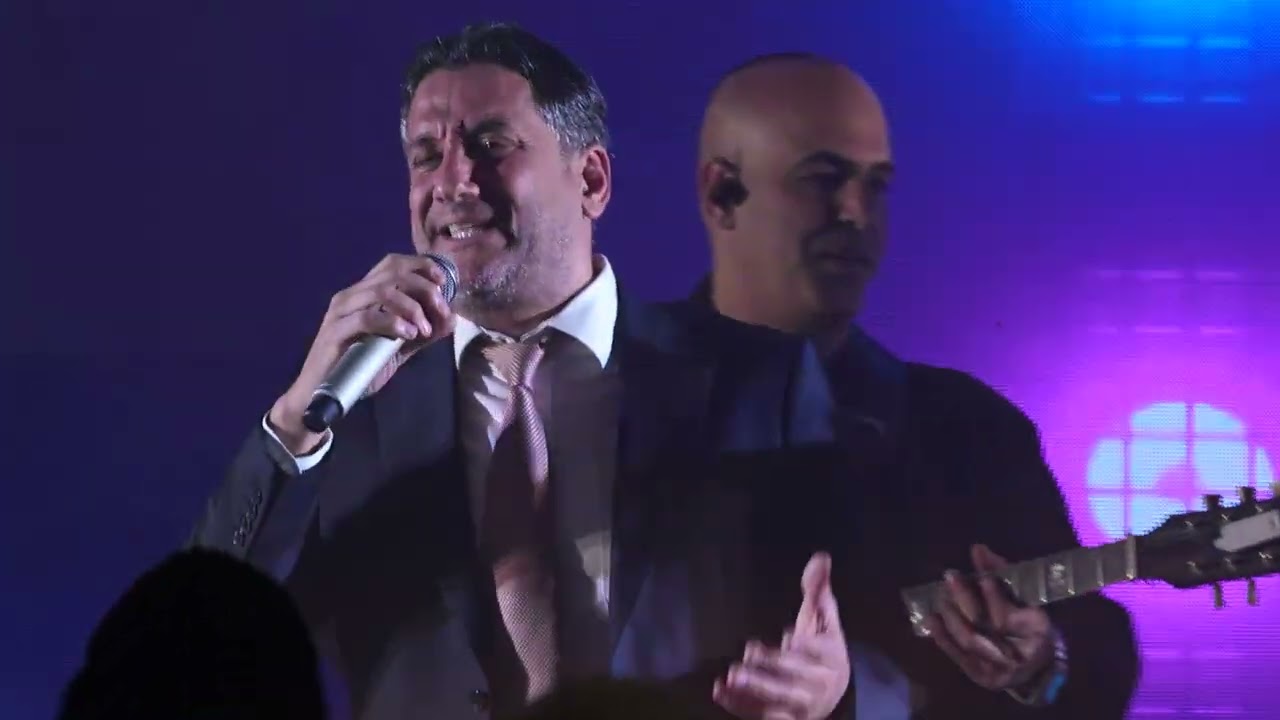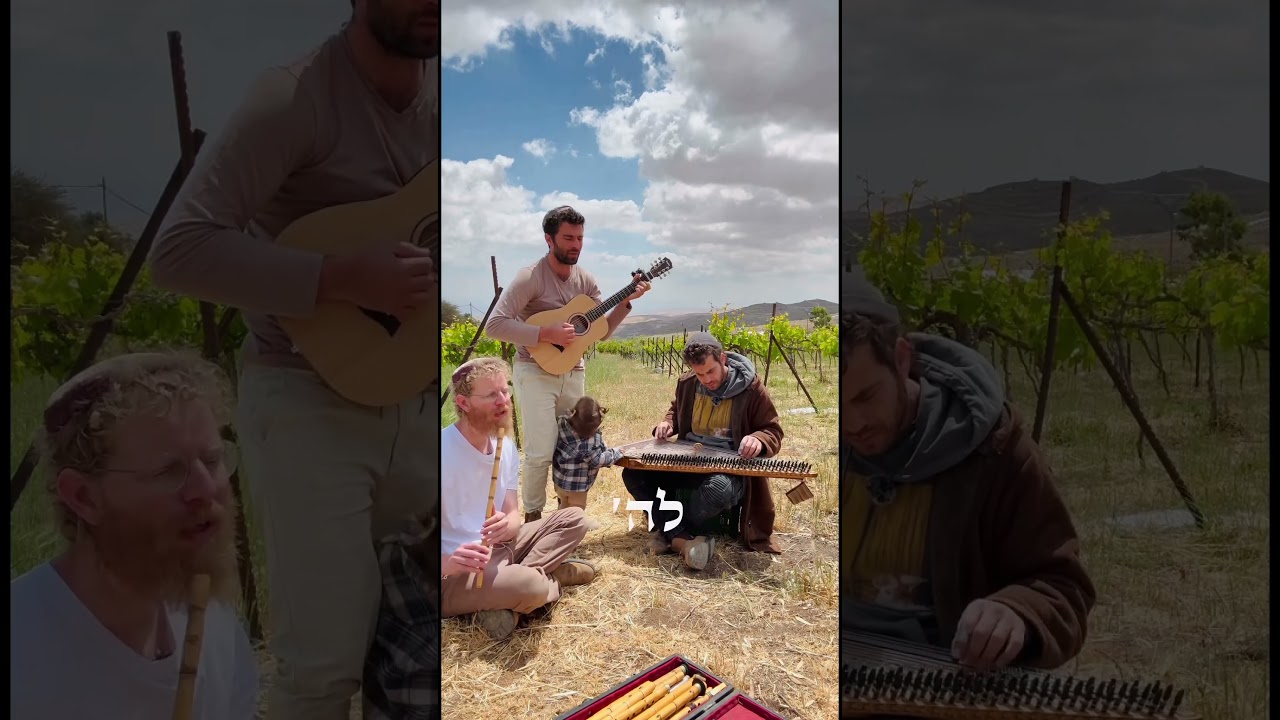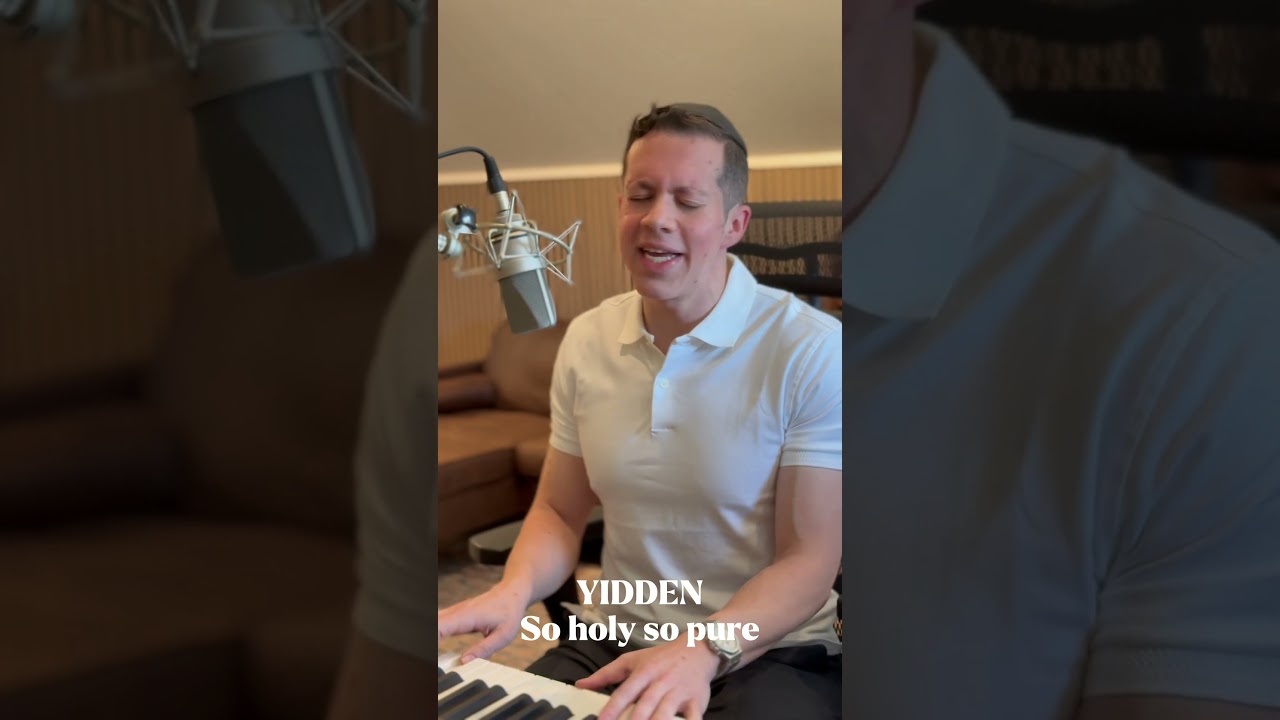אין אנחנו I קינדרלעך I מתנה טובה Ein Anachnu I Kinderlach I Shi"r I
Up Next
Shared on January 30, 2018
האלבום 'מתנה טובה' מלחניו של ר' שלמה יהודה רכניץ, יוצא לרגל שמחת נישואי בתו חנה עב"ל נפתלי שוסס הי"ו.
באלבום 12 לחנים חדשים, ומשתתפים בו הזמרים: אברהם פריד, אוהד מושקוביץ, משה מנדלוביץ, איציק דדיה, שלוימי דסקל, בני פרידמן, ברוך לוין, ברי וובר, שמחה ליינר, קינדרלעך, משה טישלר, הילד א.ח. גרין וקהלת שירה.
הפקה: דוד פדידה
עיבודים: אלי קליין & איצי ברי
אילו פינו מלא שירה כים ולשונינו רינה כהמון גליו ושפתותינו שבח כמרחבי רקיע ועינינו מאירות כשמש וירח וידינו פרושות כנשרי שמים ורגלינו קלות כאיילות: אין אנחנו מספיקים להודות לך ה' אלקינו ואלקי אבותינו ולברך את שמך
Toward the beginning of the tefillah of Nishmas, we declare, “Ilu finu malei shirah ka’yam, u’lshoneinu rinah ka’hamon galav, ve’sifsoseinu shevach ke’merchavei rakia … ein anachnu maspikim le’hodos lecha Hashem… u'levarech es Shemecha— Were our mouths as full of song as the sea, and our tongues as full of joyous song as its multitude of waves, and our lips as full of praise as the breadth of the heavens… we still could not thank You sufficiently, Hashem.”
Rav Baruch of Mezhibuzh gives a beautiful insight. The first portion of Nishmas uses the suffix “nu,” meaning ours. Our mouths. Our tongues. Our lips. This implies that the power lies within us, that we are the ones who control our destiny. Therefore, “Ein anachnu maspikim le’hodos lecha Hashem — We still could not thank You sufficiently, Hashem.” If we attribute our capabilities to ourselves, and fall into the trap of assuming that our victories and achievements are due to our innate skills, then we are unable to even begin thanking Hashem.
There are times when we celebrate a momentous occasion, and it is easy for us to take the credit. We may mistakenly feel that it is our intellect, our effort, our hard work, and our talents that have brought us to this moment. But we must never forget that it is Hashem Who controls everything, down to the last breath we take. Hence, all our accomplishments have nothing to do with our capabilities, but they are only due to Hashem’s kindness.
We can step forward and use those gifts Hashem has bestowed upon us to do what we are meant to do — bring praise to Hashem.
And this is the beauty of the prayer of Nishmas.
באלבום 12 לחנים חדשים, ומשתתפים בו הזמרים: אברהם פריד, אוהד מושקוביץ, משה מנדלוביץ, איציק דדיה, שלוימי דסקל, בני פרידמן, ברוך לוין, ברי וובר, שמחה ליינר, קינדרלעך, משה טישלר, הילד א.ח. גרין וקהלת שירה.
הפקה: דוד פדידה
עיבודים: אלי קליין & איצי ברי
אילו פינו מלא שירה כים ולשונינו רינה כהמון גליו ושפתותינו שבח כמרחבי רקיע ועינינו מאירות כשמש וירח וידינו פרושות כנשרי שמים ורגלינו קלות כאיילות: אין אנחנו מספיקים להודות לך ה' אלקינו ואלקי אבותינו ולברך את שמך
Toward the beginning of the tefillah of Nishmas, we declare, “Ilu finu malei shirah ka’yam, u’lshoneinu rinah ka’hamon galav, ve’sifsoseinu shevach ke’merchavei rakia … ein anachnu maspikim le’hodos lecha Hashem… u'levarech es Shemecha— Were our mouths as full of song as the sea, and our tongues as full of joyous song as its multitude of waves, and our lips as full of praise as the breadth of the heavens… we still could not thank You sufficiently, Hashem.”
Rav Baruch of Mezhibuzh gives a beautiful insight. The first portion of Nishmas uses the suffix “nu,” meaning ours. Our mouths. Our tongues. Our lips. This implies that the power lies within us, that we are the ones who control our destiny. Therefore, “Ein anachnu maspikim le’hodos lecha Hashem — We still could not thank You sufficiently, Hashem.” If we attribute our capabilities to ourselves, and fall into the trap of assuming that our victories and achievements are due to our innate skills, then we are unable to even begin thanking Hashem.
There are times when we celebrate a momentous occasion, and it is easy for us to take the credit. We may mistakenly feel that it is our intellect, our effort, our hard work, and our talents that have brought us to this moment. But we must never forget that it is Hashem Who controls everything, down to the last breath we take. Hence, all our accomplishments have nothing to do with our capabilities, but they are only due to Hashem’s kindness.
We can step forward and use those gifts Hashem has bestowed upon us to do what we are meant to do — bring praise to Hashem.
And this is the beauty of the prayer of Nishmas.
Report this video
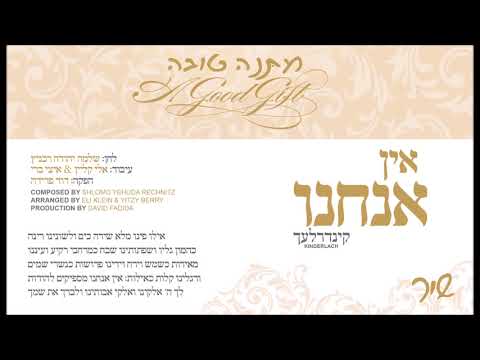


 Avraham Fried
Avraham Fried Baruch Levine
Baruch Levine Itzik Dadya
Itzik Dadya Kinderlach
Kinderlach Ohad Moskowitz
Ohad Moskowitz The Shira Choir
The Shira Choir